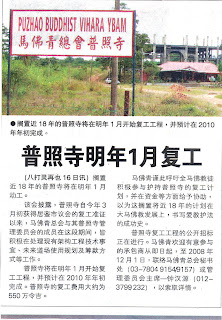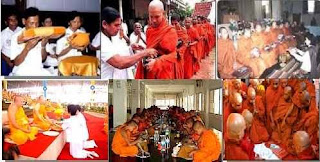What is Dhammic Socialism?
For anything to succeed in this natural world it must harmonize with, be in line with Dhamma, follow from and serve, the Law of Nature. Anything that fits with, conforms to, follows from, and serves the Law of Nature is "Dhammic." To be Dhammic is to be non-violent, unselfish, compassionate, mindful, and cool. Ajarn Buddhadasa summarized it in two words "peaceful" and "useful." Being "peaceful" means doing nothing to hurt, harm, exploit, abuse, or oppress anyone, whether others of oneself. Such peacefulness requires a heart-mind free of selfishness and egoism. Being "useful" means helping in the struggle for genuine liberation from suffering, no mater on what level or in what area of life. True Dhamma does not concoct dualities likes "personal-social" or "worldly-spiritual." Don't believe that socialism is dead! This is just the materialist propaganda of neo-conservative diehard capitalists. Real socialism has ne






